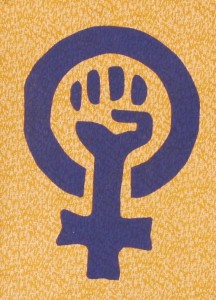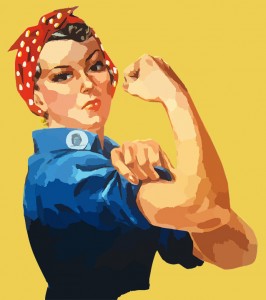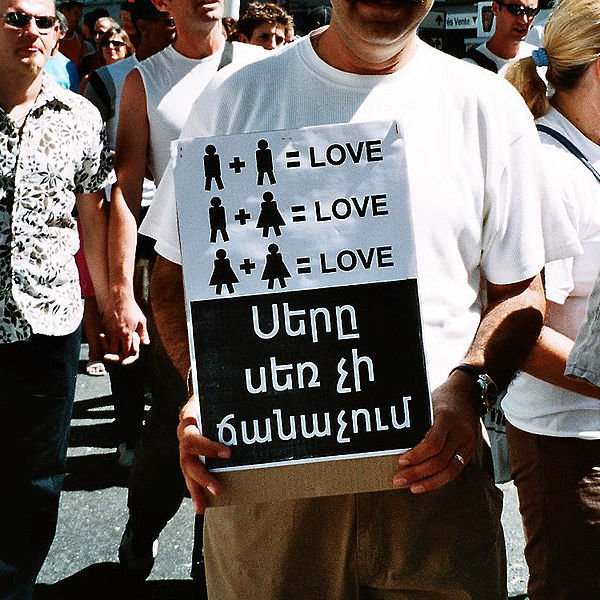 American feminist, journalist, and activist Gloria Steinem said, “In my heart, I think a woman has two choices: either she’s a feminist or a masochist.” So, what does it really mean to be a feminist?
American feminist, journalist, and activist Gloria Steinem said, “In my heart, I think a woman has two choices: either she’s a feminist or a masochist.” So, what does it really mean to be a feminist?
For the first time in history this term was used in France and the Netherlands in 1872, then in Great Britain in the 1890s and the United States in 1910. Feminism itself is as a combination of political, economic, and social equality of the sexes, and an organized activity for women’s rights and shared interests. There are five types of feminism: liberal, radical, marxist and socialist, as well as cultural and eco-feminism.
Feminist movement is divided into three waves; the first wave (19th to early 20th centuries) dealt with suffrage, working conditions, and educational rights for women. Prominent feminists were Mary Wollstonecraft, Susan B. Anthony, Lucy Stone, etc. It is considered that first wave ended when the Nineteenth Amendment to the U.S. Constitution was adopted granting women electoral rights. Despite first wave, the second wave (1960s-1980s) focused on the de facto inequalities: the inequality of laws and the role of women in a society. The third wave of feminism (early 1990’s-present) has appeared in response to the failure of the second wave initiatives and movements. Famous feminists of this period were Judith Butler, Martha Davis, Betty Dodson, etc.
Some men and even women mistook feminism for something terrible by creating wrong conjectures, myths about it such as all feminists are lesbians and hate men, women can’t be feminine and feminists at the same time or feminists don’t believe in marriage etc. However in feminist movement men also had a vital role. The majority of pro-feminist authors were from France, among them Denis Diderot, Paul Henri d’Holbach and Charles Louis de Montesquieu. John Stuart Mill, who is considered the father of feminism, was among the earliest pro-feminists and in his article “The Subjection of Women” tried to prove that the legal subordination of women is not just and it should find a solution for absolute equality.
 Moving from the history of feminism to Armenian reality, we should consider that in fact we have never formed feminist movement in our country. Instead we have individuals who raised women’s issues during their lifetime and some modern feminists who are running NGOs that deal with women’s rights and gender issues. Armenian women of the XX century started to speak about issues of gender equality and women rights. Among those worth mention Siran Zarafian who was a proponent of women’s empowerment and education, Arlene Avakian, one of the founders of Women’s Studies Program in the Massachusetts University, Srpuhi Dussap (Vahanian), who was the first Armenian feminist novelist.
Moving from the history of feminism to Armenian reality, we should consider that in fact we have never formed feminist movement in our country. Instead we have individuals who raised women’s issues during their lifetime and some modern feminists who are running NGOs that deal with women’s rights and gender issues. Armenian women of the XX century started to speak about issues of gender equality and women rights. Among those worth mention Siran Zarafian who was a proponent of women’s empowerment and education, Arlene Avakian, one of the founders of Women’s Studies Program in the Massachusetts University, Srpuhi Dussap (Vahanian), who was the first Armenian feminist novelist.
Nowadays women deal with various violations to their rights, such as sexual abuse, domestic violence, gender inequality etc. Feminist civic activists joined forces in order to solve these problems and break existing stereotypes. Today’s feminist group success example is the Coalition to Stop Violence Against Women, which was created by 7 local NGOs. The goal of the coalition is to raise awareness on violence against women, change existing mentality concerning domestic violence, provide defense and support to female victims of abuse. The activities of Coalition now vary from organization of different meetings, events, trainings devoted to domestic violence and women rights issues.
One of the current urgent issues for women rights protection is the draft law on domestic violence proposed by the Women’s Rights Center NGO and submitted to the Armenian Ministry of Labor and Social Affairs. The Coalition repeatedly tried to pressure the authorities to adopt the law, but the National Assembly rejected the adoption of law, and currently NGO activists circulate the petition on passing the law as domestic violence is not an issue specifically for women but has a national importance.
We hope that in the nearest future we will see the adoption and effective implementation of law against domestic violence as the maintenance of rule of law due to deductive work of Armenian feminists.
Lilit Sargsyan



